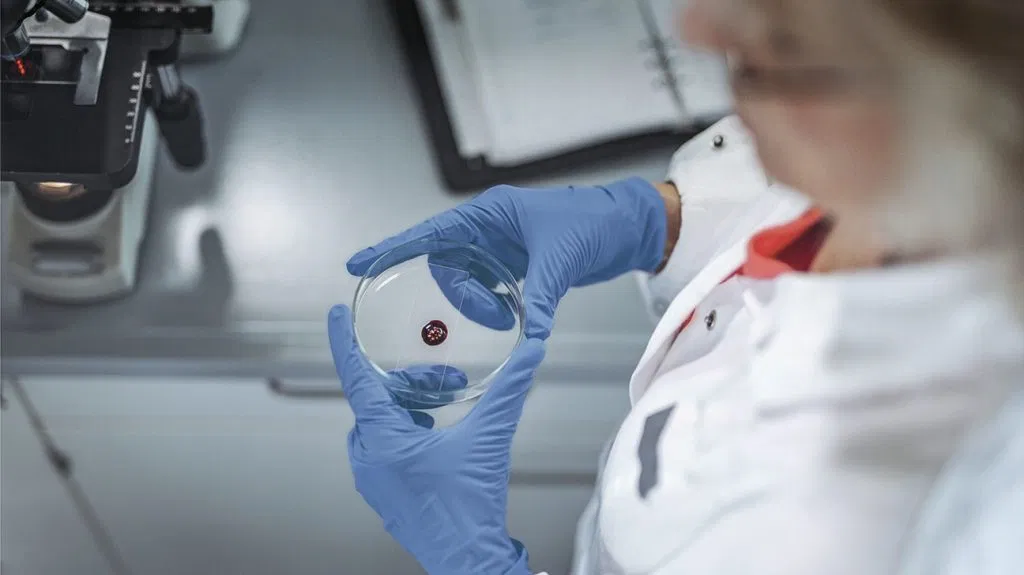The MCV Blood Test is a standard diagnostic test that measures the average size of red blood cells in a patient’s bloodstream. This test can provide valuable information about a patient’s overall health and can be used to diagnose a variety of medical conditions. In this article, we will provide a comprehensive guide to the MCV Blood Test, including what it measures, how it is performed, and what the results mean.
Table of Contents
What is the MCV Blood Test?\

The Blood Test MCV measures the average size of red blood cells in a patient’s bloodstream. Red blood cells are responsible for carrying oxygen throughout the body, and their size can provide important information about a patient’s health. The MCV Blood is typically ordered as part of a complete blood count (CBC), which is a routine blood test that is used to evaluate a patient’s overall health.
How is the MCV Blood Test performed?
The Blood Test is a simple blood test that can be performed in a doctor’s office or at a lab. The patient’s blood is drawn from a vein in their arm using a small needle. The blood sample is then sent to a lab for analysis. The results of the MCV Blood are typically available within a few days.
What do the results of the MCV Blood Test mean?
The results of the MCV Blood Test are expressed in femtoliters (fL), which is a measure of volume. The normal range for MCV is between 80 and 100 fL. If a patient’s MCV is higher than the normal range, it is called macrocytosis, which means that their red blood cells are larger than normal. If a patient’s MCV is lower than the normal range, it is called microcytosis, which means that their red blood cells are smaller than normal.
What medical conditions can be diagnosed with the MCV Blood Test?
The MCV Blood Test can be used to diagnose a variety of medical conditions, including anemia, vitamin B12 deficiency, and liver disease. Macrocytosis is often seen in patients with vitamin B12 deficiency, while microcytosis is often seen in patients with iron deficiency anemia. In addition, the MCV Blood Test can be used to monitor patients who are undergoing chemotherapy or who have a history of heavy alcohol consumption.
How is the MCV Blood Test used in the diagnosis of anemia?

Anemia is a medical condition in which a patient has a low number of red blood cells or a low level of hemoglobin in their blood. The MCV Test Blood can be used to diagnose anemia by measuring the size of a patient’s red blood cells. If a patient’s MCV is below the normal range, it may indicate that they have microcytic anemia, which is often caused by iron deficiency. If a patient’s MCV is above the normal range, it may indicate that they have macrocytic anemia, which is often caused by vitamin B12 deficiency.
How is the MCV Blood Test used in the diagnosis of liver disease?
The MCV Blood Test can also be used to diagnose liver disease. In patients with liver disease, the liver is often unable to produce enough of a protein called transferrin, which is responsible for transporting iron in the blood. This can result in microcytic anemia. However, in some cases, patients with liver disease may also develop macrocytic anemia due to impaired liver function. In these cases, the Blood Test can be used to monitor the patient’s red blood cell size and provide valuable information about their overall health.
What are some common causes of abnormal MCV Blood Test results?
There are several common causes of abnormal MCV Blood results. Macrocytosis, or an elevated MCV, can be caused by a variety of factors, including vitamin B12 or folate deficiency, liver disease, alcoholism, and certain medications such as chemotherapy drugs. Microcytosis, or a low MCV, can be caused by iron deficiency anemia, thalassemia, or chronic kidney disease.
How is the MCV Blood Test used to monitor chemotherapy patients?
Chemotherapy is a common treatment for cancer, but it can also cause damage to healthy cells in the body, including red blood cells. The MCV Test Blood can be used to monitor patients who are undergoing chemotherapy by measuring the size of their red blood cells. If a patient’s MCV drops below the normal range, it may indicate that they are developing anemia as a side effect of their chemotherapy treatment. In these cases, the patient’s treatment plan may be adjusted to minimize the risk of further complications.
What should patients know before undergoing an MCV Blood Test?

Before undergoing an Blood Test, patients should talk to their doctor about any medications or supplements they are taking, as these can affect the results of the test. Patients should also follow any fasting or other preparation instructions provided by their doctor or lab. It is important for patients to understand that an abnormal MCV Blood Test result does not necessarily mean that they have a medical condition. Further testing may be necessary to make an accurate diagnosis.
Conclusion
The MCV Test is a simple but important diagnostic tool that can provide valuable information about a patient’s overall health. By measuring the size of a patient’s red blood cells, this test can be used to diagnose a variety of medical conditions, including anemia, vitamin B12 deficiency, and liver disease. Patients should talk to their doctor about whether an MCV Test is appropriate for them and what they can expect during the testing process. By working with their healthcare team, patients can ensure that they receive the best possible care and treatment for their individual needs.


